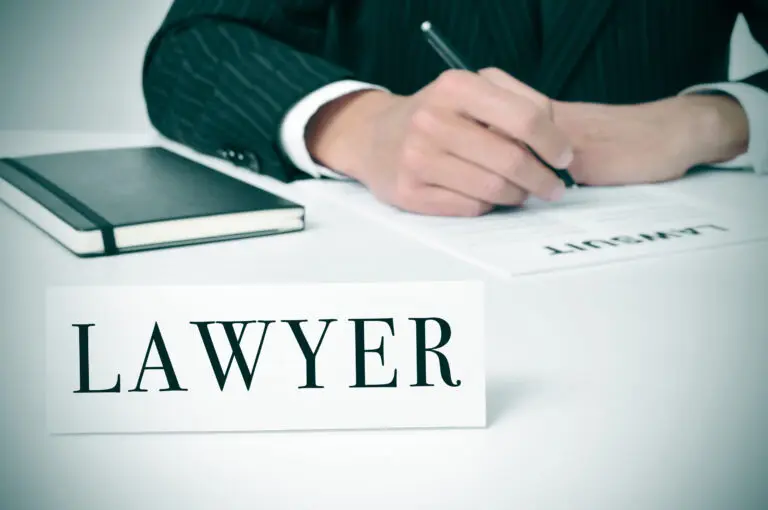A criminal record can follow you long after you’ve served your sentence, limiting your ability to secure employment, housing, and even professional licenses. Fortunately, in many cases, it’s possible to expunge or seal your criminal record, effectively erasing it from public view. If you’re considering expunging your criminal record, seeking asesoramiento jurídico is crucial to navigating the complexities of the process. With the right guidance, you can ensure that your eligibility is determined correctly, all required documents are filed appropriately, and that your chances of successfully clearing your record are maximized.
Expungement laws and procedures vary from state to state, making it essential to understand the process in your jurisdiction. This article delves into the expungement process, explores common challenges, and emphasizes the importance of getting professional consulta jurídica to help clear your past.
What Does Expungement Mean?
Cancelación de antecedentes penales is the legal process that allows an individual to remove a criminal conviction or arrest from their public record. Once a record is expunged, it is as though the crime never occurred in the eyes of the law. This can help individuals move forward in life without the stigma of a criminal record hanging over their heads. In most cases, an expunged record will not appear in background checks, making it easier to secure employment, housing, or educational opportunities.
However, it is important to understand that expungement is not available in all cases, and it does not necessarily mean that the record is erased entirely. Depending on the state and the specifics of the crime, law enforcement agencies or courts may still be able to access expunged records under certain circumstances. Understanding these nuances is critical, and an expungement lawyer can provide clarity on whether your record qualifies for expungement.
Expungement is particularly beneficial for individuals who have committed minor offenses or for those who have made a single mistake. For example, those convicted of delitos no violentos, juvenile offenseso misdemeanors are often eligible for expungement, though the criteria vary by state. A key factor that determines eligibility is whether the individual has fulfilled all legal obligations, such as completing probation, paying fines, or adhering to the conditions of parole.
The Expungement Process: Steps and Requirements
The process for expunging a criminal record varies by state, but there are several general steps that most individuals will need to follow. One of the most important aspects of the process is determining your eligibility, which can be influenced by several factors such as the type of offense, the outcome of the case, and the amount of time that has passed since the conviction. Legal consultation can be invaluable at this stage, as an attorney can help you determine whether you qualify for expungement.
Step 1: Determine Eligibility
The first step in the expungement process is to assess whether your criminal record is eligible for expungement. Factors that may affect eligibility include the severity of the offense, the nature of the crime (whether it was a misdemeanor or felony), and whether you have completed all sentencing requirements, including probation and fines. Consulta jurídica is essential at this stage to ensure that you understand whether your case qualifies for expungement.
Some states have strict guidelines on which crimes can be expunged, while others are more lenient. For example, violent crimes, delitos sexualeso DUI convictions are often excluded from expungement eligibility. However, juvenile records o first-time offenders may have greater access to expungement. An attorney experienced in criminal record expungement can help assess your case and guide you through the eligibility requirements for your jurisdiction.
Step 2: Filing a Petition for Expungement
Once you have determined that you are eligible, the next step is to file a petition for expungement with the court that handled your case. This petition formally requests that the court remove the conviction or arrest from your record. Your petition must be filed correctly, and supporting documentation—such as a copy of your criminal record and proof that you completed your sentence—must be included.
Given the complexities of filing a petition, it is highly recommended to seek legal advice during this stage. A abogado penalista can assist you with gathering the necessary documents, completing the petition, and submitting it to the court. Errors in the petition can lead to delays or even a denial of expungement, so having professional guidance is crucial.
In addition to the petition, you may be required to pay a filing fee. Some jurisdictions may waive fees for individuals facing financial hardship. Your attorney can help you navigate these details, ensuring that your petition is submitted accurately and on time.
Step 3: Court Hearing and Decision
In many cases, after the petition is filed, a vista judicial will be scheduled. During this hearing, the judge will review your request and any objections raised by the prosecution or law enforcement agencies. The judge will assess whether you meet the legal requirements for expungement and whether granting your request serves the interests of justice.
Having an experienced expungement lawyer by your side during the hearing can make a significant difference. Your attorney can present arguments on your behalf, demonstrate your rehabilitation, and show that expunging your record is appropriate given the circumstances of your case. The judge’s decision may be based on factors such as your behavior since the conviction, your contributions to society, and whether expunging the record poses a risk to public safety.
If the judge grants your petition, the record will be sealed or expunged, depending on the state’s laws. Once the record is expunged, it will no longer appear on public background checks. However, it’s important to note that some governmental agencies may still have access to your sealed records for certain purposes, such as immigration applications or federal employment.
The Importance of Legal Advice for Expunging a Criminal Record
While it may be tempting to handle the expungement process on your own, there are several reasons why obtaining asesoramiento jurídico is critical to achieving a successful outcome. Expungement laws vary widely from state to state, and each case is unique, making it important to have professional guidance that is tailored to your specific situation.
Understanding State-Specific Expungement Laws
One of the most significant challenges in expunging a criminal record is understanding the specific laws and procedures that apply in your state. Expungement laws are not uniform across the United States, and what might be possible in one state may not be allowed in another. For instance, in some states, individuals can expunge certain felony convictions, while in others, only misdemeanors are eligible. In addition, the waiting period before you can file for expungement can vary depending on the state and the type of offense.
By consulting with a knowledgeable attorney, you can better understand the legal requirements in your state and avoid unnecessary mistakes. Your attorney will ensure that your petition is filed in accordance with local laws and that you meet the eligibility criteria. In many cases, failing to comply with state-specific regulations can result in a denial of your petition, which can be difficult to appeal.
Avoiding Common Mistakes in the Expungement Process
Filing a petition for expungement involves multiple steps, and there are several common mistakes that individuals make when attempting to handle the process on their own. These mistakes can lead to delays or even the denial of your request. Some of the most common errors include failing to submit all required documentation, missing court deadlines, or misunderstanding eligibility requirements.
Working with an expungement lawyer can help you avoid these pitfalls. An attorney will ensure that your petition is complete, accurate, and submitted on time. They will also represent you in court, if necessary, and handle any objections that may arise during the hearing. Having a professional advocate on your side greatly increases your chances of success.
Maximizing Your Chances of Success
While not all expungement requests are granted, having legal representation can improve your chances of a favorable outcome. Attorneys experienced in derecho penal y expungement know how to present a compelling case to the court, emphasizing your rehabilitation, contributions to society, and the reasons why expungement is in the public’s interest.
Moreover, legal advice can be especially helpful if your case involves complex factors, such as multiple convictions or prior denials of expungement. Your attorney can identify legal strategies to overcome these challenges and advocate on your behalf during the court hearing.
Challenges in Expunging a Criminal Record
Expunging a criminal record is not always straightforward, and there are several potential challenges that individuals may face during the process. Understanding these challenges can help you better prepare and increase your chances of successfully clearing your record.
Restrictions on Certain Offenses
Not all criminal offenses are eligible for expungement. Violent crimes, sex offensesy DUI convictions are typically excluded from expungement in many states. In addition, individuals with multiple convictions or a lengthy criminal history may face more stringent eligibility requirements.
For example, in some states, expungement is only available to first-time offenders or those convicted of non-violent misdemeanors. If you have a felony conviction or a violent crime on your record, the expungement process may be more challenging, and you may need to explore alternative options such as record sealing or a pardon.
En expungement attorney can review your case and determine whether you qualify for expungement or other forms of relief. They can also advise you on any potential barriers to expungement and develop a strategy to address these obstacles.
Opposition from the Prosecution or Law Enforcement
During the expungement process, it is common for the fiscalía o law enforcement agencies to object to your petition. These objections may be based on the severity of the crime, concerns about public safety, or doubts about your rehabilitation. In some cases, prosecutors may argue that expunging your record would not serve the interests of justice.
Having legal representation is crucial in these situations. An experienced attorney can address the prosecution’s objections and present evidence of your rehabilitation, such as employment records, letters of recommendation, or proof of community involvement. Your lawyer can also argue that expunging your record is necessary to help you move forward with your life and avoid the ongoing stigma of a criminal conviction.
Long Waiting Periods
In many states, individuals must wait a certain amount of time after completing their sentence before they are eligible to apply for expungement. This waiting period can vary depending on the nature of the offense and the state’s specific laws. In some cases, the waiting period may be several years, during which time the individual must maintain a clean criminal record.
If you are facing a long waiting period, your attorney can help you explore alternative options, such as seeking a pardon or filing a petition for early termination of probation. These alternatives can help you begin the process of clearing your record sooner, depending on the circumstances of your case.
Conclusion: The Value of Legal Advice in the Expungement Process
Expunging a criminal record can open doors to new opportunities and help you move forward in life without the burden of a past conviction. However, the process is often complicated and filled with legal challenges that require expert guidance. By seeking asesoramiento jurídico from an experienced attorney, you can increase your chances of successfully expunging your record and securing a fresh start.
En expungement lawyer can guide you through the eligibility requirements, help you file the necessary paperwork, and represent you during court hearings. Whether you’re facing opposition from the prosecution or navigating the complexities of state-specific laws, having a lawyer by your side ensures that your case is handled correctly and professionally. If you’re ready to clear your past and start anew, consult with an attorney to begin the expungement process today.









